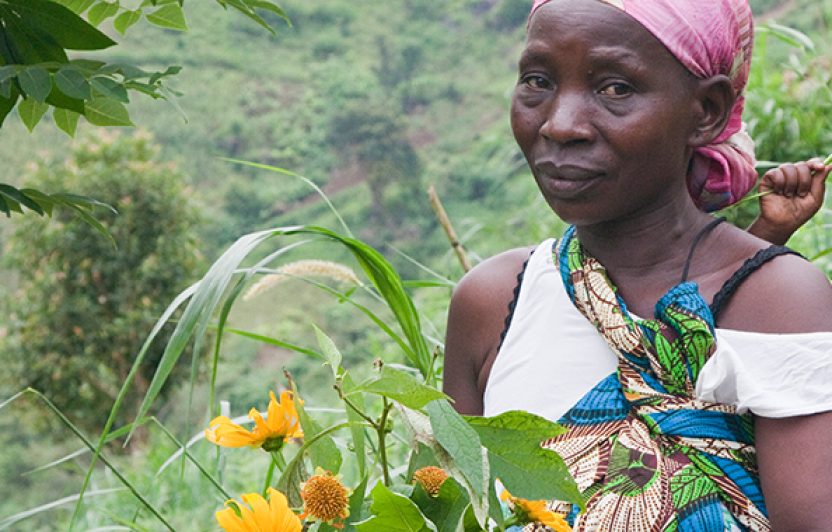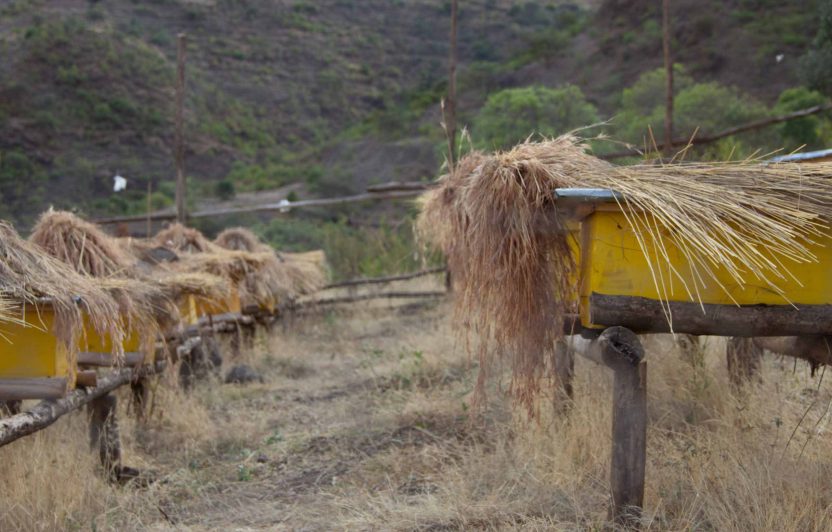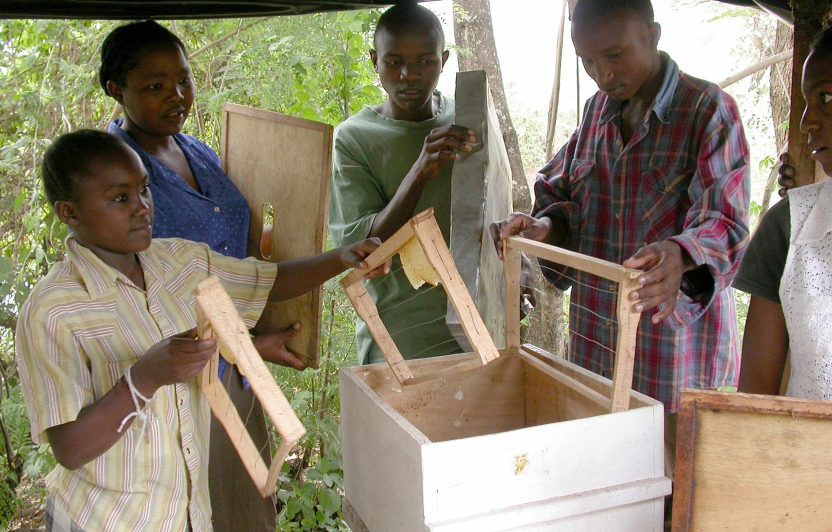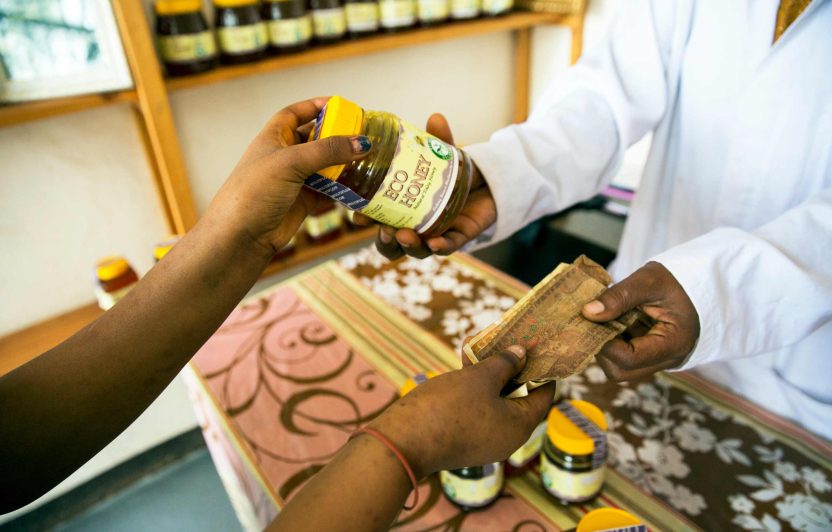“Our activities in the Wag-Himra Zone in Dehana continue to run smoothly and without major interruption – despite the military intervention in neighbouring Tigray” writes Workneh Ayalew, project coordinator and project partner at the International Centre of Insect Physiology and Ecology icipe (based in Nairobi, Kenya, with an offshoot in the Ethiopian capital Addis Ababa) in an email to Biovision. “The young project participants have just completed their training in harvesting honey.”
Success despite conflict, the coronavirus and a plague of locusts
These were good updates to receive from icipe in Addis Ababa in early December 2020. The district of Dehana, where the bee and honey project is running, borders on the Tigray region where the Ethiopian army is facing off against armed rebels. The clashes between the government troops and the Tigray People’s Liberation Front (TPLF) affect the daily lives of the people in the region. Additionally, the coronavirus measures throughout the entire country are making project work difficult. October 2020 brought yet another difficulty: an invasion of desert locusts threatened to spread to the region from two neighbouring areas. This worried beekeepers, as the honey harvest was fast approaching.

The project team manages the crises
But Ayalew, the project team and the young beekeepers did not let themselves get discouraged and adapted to the adverse conditions as best they could. The invasion of desert locusts was thankfully brought under control in the project area, and the project progressed despite a brief breakdown in communication at the beginning of the military campaign in November 2020. “The project partners are experienced in dealing with difficult situations, and they find new ways to conduct their training courses despite restrictions thanks to on-site experts and staying in contact with the beekeeper groups. In addition, the project is very well embedded in the local structures and is also supported by the authorities”, explains Loredana Sorg, project officer at Biovision, who stays in regular contact with Ayalew.
Big success for the project team
Thanks to the loosening of coronavirus-related travel restrictions, the project’s steering group was able to meet again in December after several months. And Ayalew and his team recently celebrated a great achievement: the young beekeepers founded a trading cooperative for honey and beeswax in Dehana. In the future, the cooperative will take care of managing and marketing the products of the around 30 active beekeeping enterprises and strive to find new channels for sales and advertising.
Good prospects in the new year
In Dehana, the bees will continue to buzz and the honey will continue to flow. The bee project is so successful that it will be extended to two more districts in 2021, kicked off by a honey festival that icipe is planning.





